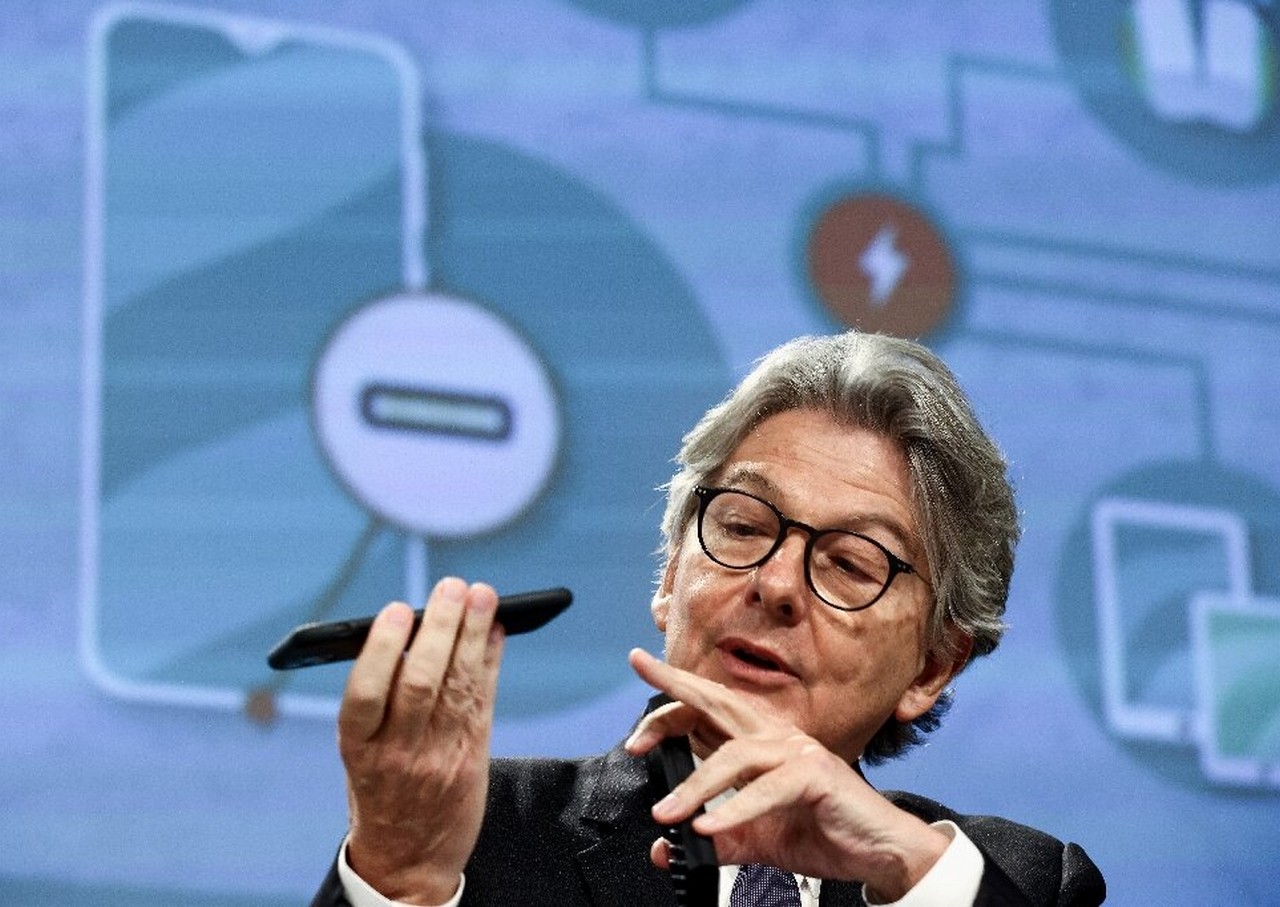The principle EU governing establishments on Thursday banned their employees from putting in TikTok on units used for work amid issues over knowledge safety, in a transfer that provoked an offended response from the corporate.
TikTok, whose dad or mum firm ByteDance is Chinese language, has confronted rising Western scrutiny in latest months over fears about how a lot entry Beijing has to person knowledge.
The ban impacts employees on the European Fee and European Council, which represents member states, however the European Parliament has not but taken the same choice.
The brand new guidelines imply employees can’t use the video-sharing app on work units and private units, similar to telephones, which have official EU electronic mail and communication apps put in.
The Fee mentioned its workers should take away the app as quickly as attainable and may accomplish that by March 15.
EU spokeswoman Sonya Gospodinova mentioned the company administration board of the Fee, the EU’s government arm, had made the choice for safety causes.
“The measure goals to guard the Fee towards cybersecurity threats and actions which can be exploited for cyberattacks towards the company surroundings of the fee,” she mentioned.
European Council spokesman Barend Leyts instructed AFP it “shall be uninstalling the applying on company units and requesting employees to uninstall it from private cell units which have entry to company providers”.
A spokesperson for TikTok mentioned “we consider this suspension is misguided and based mostly on elementary misconceptions”.
‘Disenchanted’
EU trade commissioner Thierry Breton pointed to the cybersecurity dangers he mentioned had knowledgeable the Fee’s choice.
“As an establishment, the European Fee has, from the start of the mandate, a really sturdy concentrate on cybersecurity, defending our colleagues and, in fact, everybody who’s working right here within the Fee,” Breton instructed reporters.
In November, TikTok admitted some employees in China can entry the information of European customers.
The corporate nonetheless denies that the Chinese language authorities has any management or entry.
TikTok on Thursday pressured it protects the information of its 125 million month-to-month customers within the European Union and was taking steps to strengthen knowledge safety.
It later mentioned it had requested a gathering with the Fee “to set the document straight”.
“We’re persevering with to reinforce our strategy to knowledge safety, together with by establishing three knowledge centres in Europe to retailer person knowledge regionally; additional decreasing worker entry to knowledge; and minimising knowledge flows outdoors of Europe,” the agency mentioned.
America final 12 months banned the app from federal authorities units, and a few US lawmakers try to ban TikTok from working in the US.
Final month, the Dutch authorities reportedly suggested public officers to keep away from the app over comparable issues.
The European Parliament on Thursday mentioned it was “monitoring and assessing all attainable knowledge breaches associated to the app” and would contemplate the Fee’s analysis earlier than making suggestions.
Robust line on tech
TikTok chief government Shou Zi Chew was in Brussels final month for talks with EU officers throughout which they warned the Chinese language-owned platform to make sure the security of European customers’ knowledge.
The corporate has promised to additional scale back worker entry to knowledge.
TikTok additionally promised final 12 months to carry US customers’ knowledge in the US to allay Washington’s issues.
The European Union has taken a troublesome line on know-how firms, passing two main legal guidelines to verify social media platforms adhere to the bloc’s guidelines on digital points.
The Digital Companies Act (DSA) forces social media platforms, on-line marketplaces and engines like google to react extra rapidly to take away content material deemed in breach of EU rules.
The opposite, the Digital Markets Act (DMA), prohibits anti-competitive behaviour by the so-called “gatekeepers” of the web.







